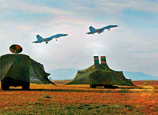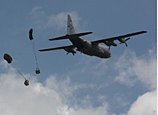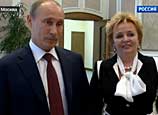
In 1954, the United Nations held a seminar on the promotion of social welfare in newly independent Burma. Held in what was then Rangoon, the aim of the meeting was to foster international collaboration to help the country – then a cosmopolitan nation and one of the better developed Asian economies – build a society that could serve as a model for the rest of the region. My maternal grandfather attended this meeting as a UN Correspondent of India, along with Daw Khin Kyi, the country’s first minister of social welfare and mother of Daw Aung San Suu Kyi.
When I consider the 60 years that have passed since that meeting, I am struck by how much the country has changed and how relevant the aspirations of those delegates remain today.
They pledged to work as an international community to advance the development agenda. Since then, unprecedented advances have been made in reducing global poverty. In China alone, over half a billion people rose out of poverty in the two decades following the early 1980s. South Korea, ravaged during the Korean War, which ended in 1953, has progressed from being one of the world’s poorest countries to one of the most advanced.
As the conclusion of the Millennium Development Goals draws closer, the post-2015 agenda must still address the fact that over 1 billion people live in poverty, inequality continues to widen and adequate social protection is lacking. As impressive as the economic growth in Africa, Latin America and South-East Asia is, its impact is seriously diminished when income gaps widen.
These same issues are at the forefront of the agenda of the 22nd World Economic Forum on East Asia, which for the first time takes place in Nay Pyi Taw – a city that did not exist in 1954 or, for that matter, 10 years ago.
Unlike China and South Korea – which have jumped so far ahead – Myanmar unfortunately has fallen so far behind. But a new journey for the country and its people is beginning. The reforms heralded by President Thein Sein and his government in the past two years have taken place with a velocity few could have expected.
In this new scenario, investments into the country will inevitably accelerate. The Forum offers a platform to forge new partnerships among governments, business and civil society. Together, they will leverage their collective creativity, capacity and capital to address the most pressing economic and societal challenges in new ways. Only by coming together and having frank discussions is it possible to build trust and understanding of how to address key development challenges – such as creating jobs, improving education, ensuring better healthcare and enhancing regional connectivity.
For this reason, our meeting's Co-Chairs include chief executives of some of the world’s largest enterprises as well as the administrator of the United Nations Development Program. Alongside these senior decision-makers from government and industry is a strong contingent of voices from civil society, including spiritual leaders representing Buddhism, Islam and Christianity.
Global, regional, political and ideological fault lines may have shifted since 1954, but they have, if anything, bestowed an even more favorable position on Myanmar than it enjoyed during colonial times. As a crossroads between India, China and ASEAN, its importance as a strategic and trading partner is immense. Its young and dynamic population combined with its abundant natural resources – if used responsibly and sustainably – can serve as the foundation for accelerating inclusive economic growth.
These are ambitious goals but there are no alternatives. As much as the reform-minded government has promised that there will be no turning back, Myanmar’s future hinges on planning and rapidly implementing long-term benefits for all stakeholders and not simply providing short-term and incremental gains.
While Burma in 1954 could not capitalize on its potential, Myanmar today has another chance. This week at the World Economic Forum on East Asia, President Thein Sein together with the Speaker of the National Assembly and, fittingly, Daw Khin Kyi's daughter are joining regional leaders to advance this transformative agenda.
















 1 killed in SW China helicopter crash
1 killed in SW China helicopter crash


![]()
